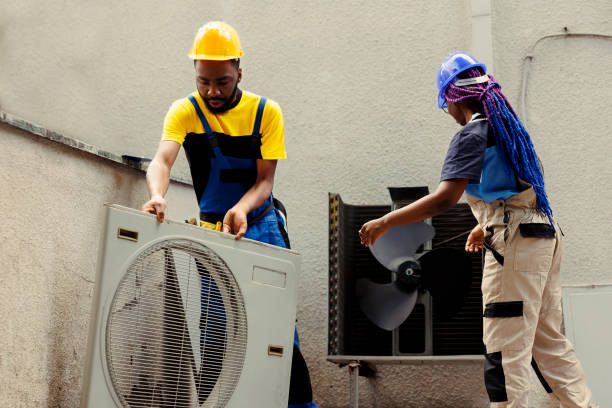A few things are as important for house comfort and upkeep as a properly operating HVAC (heating, ventilation, and air conditioning) system. Selecting the best HVAC contractor is essential when it comes to installation, repairs, or regular maintenance. Your local neighborhood likely boasts a myriad of options, but not all contractors are created equal. To ensure that you make an informed decision and entrust your HVAC needs to a reliable professional, we present the ultimate checklist for evaluating HVAC contractors in your vicinity.
1. Licensing and Certification
Begin your assessment by verifying that the HVAC contractor holds the necessary licenses and certifications. Proper licensing indicates that the contractor meets industry standards and possesses the required skills and knowledge. Certification from reputable organizations, such as NATE (North American Technician Excellence), further validates the contractor’s expertise and commitment to excellence.
2. Experience Matters
An HVAC contractor’s longevity in the industry might be a good indicator of their dependability. An experienced contractor has probably faced many different obstacles and developed their abilities over time. Look for a track record of successful projects and satisfied customers to gauge the contractor’s proficiency.
3. Customer Reviews and Testimonials
In the age of online reviews, gaining insights into the experiences of previous customers has never been easier. Explore online platforms, social media, and the contractor’s website for customer reviews and testimonials. Pay attention to recurring themes in feedback, both positive and negative, to form a well-rounded understanding of the contractor’s reputation.
4. Transparent Pricing and Contracts
A reputable HVAC contractor will provide transparent and detailed pricing information. Request a comprehensive estimate that outlines the costs associated with labor, materials, and any potential additional fees. Additionally, review the contract thoroughly to ensure that all terms, conditions, and warranties are clearly stated before committing to any services.
5. Insurance Coverage
Accidents and unforeseen events can occur during HVAC projects. Ensure that the contractor carries adequate insurance coverage, including liability insurance and workers’ compensation. This not only protects you from potential liabilities but also demonstrates the contractor’s commitment to the safety of their team and your property.
6. References and Referrals
Don’t hesitate to ask the HVAC contractor for references from past clients. Contact these references to inquire about their experiences, the quality of work provided, and the contractor’s professionalism. Additionally, seek referrals from friends, family, or neighbors who have recently engaged HVAC services. Personal recommendations can be invaluable in finding a trustworthy contractor.
7. Technical Proficiency
HVAC systems are intricate, and proficiency in handling various brands and models is essential. Inquire about the contractor’s technical expertise and whether they are familiar with the specific make and model of your HVAC system. A knowledgeable contractor is better equipped to diagnose issues accurately and provide effective solutions.
8. Energy Efficiency Knowledge
In the era of environmental consciousness, an HVAC contractor should be well-versed in energy-efficient practices. Inquire about their knowledge of energy-efficient systems, smart thermostats, and other technologies that can enhance the efficiency of your HVAC system. A contractor committed to sustainability demonstrates a forward-thinking approach to their craft.
9. Response Time and Emergency Services
HVAC issues can arise at any time, often when least expected. Assess the contractor’s response time and availability for emergency services. A reliable contractor should offer prompt responses and have provisions for addressing urgent HVAC needs, especially during extreme weather conditions.
10. Professionalism and Communication
Effective communication is a cornerstone of a successful contractor-client relationship. Evaluate the contractor’s professionalism, responsiveness to inquiries, and clarity in communication. A contractor who takes the time to understand your concerns and explains complex concepts in an accessible manner is more likely to provide a positive and stress-free experience.
Conclusion
There are several criteria that need to be carefully considered when choosing an HVAC professional. Following this thorough checklist gives you the ability to make an informed choice that best suits your demands and guarantees the efficient operation of your HVAC system. Recall that taking the time to choose the best HVAC contractor is an investment in your house’s comfort and well-being.










